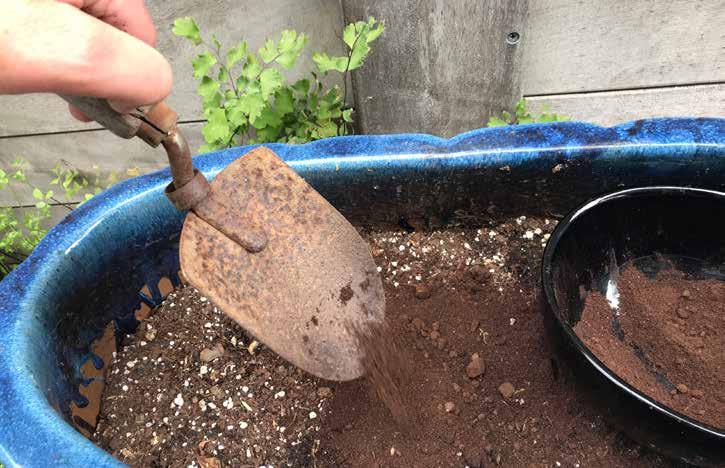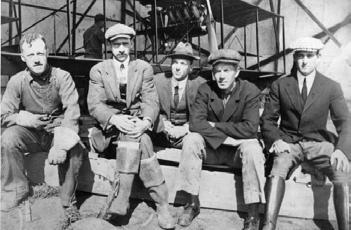T H E D I S H O N D I R T | L E S L I E C R AW F O R D
Coffee grounds release essential nutrients into soil.
May in the Garden
O
ne of my simple morning pleasures is wandering around the garden with my cup of coffee. Most of us drink coffee daily, which adds up to a lot of grounds tossed in the garbage. The grounds are organic so consider recycling them as a soil amendment. You can mix them in a compost bin or sprinkle them around your plants as a mulch – either way is beneficial to the garden. Coffee grounds bring essential nutrients into the soil including nitrogen, phosphorus, iron and zinc. As a mulching material they bring the benefits of moderating soil temperature and holding water. There is a misconception that 60
CROWN CITY MAGAZINE
coffee grounds make soil acidic, but there is no science to back that up. Another common theory that they repel slugs, snails, cats or other wildlife also has no basis. |
M AY 2 0 1 9
Earthworms are not attracted to coffee grounds but do eat them as a food source, effectively moving them deeper into the soil. Coffee grounds are fine, so too thick of a layer (over ½ inch) will become compacted and will prevent good air and water circulation. Don’t use them over areas where you have planted seeds. If you are using a compost bin, it is recommended that no more than 25 percent of the contents are coffee grounds to keep a good balance of microbes flourishing. Some coffee shops save grounds for gardeners. Personally, my morning coffee provides plenty of grounds for my garden!




